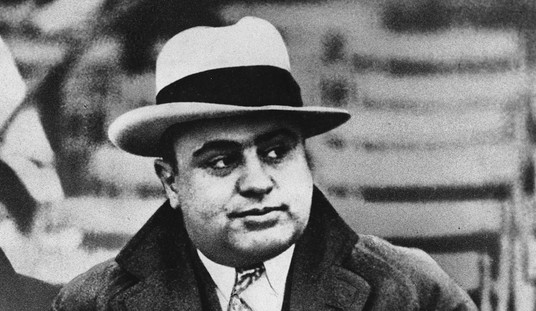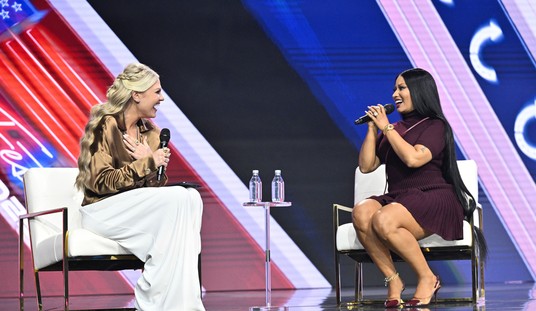Much like the famous quote about how everyone talks about the weather but nobody does anything about it, (often attributed to Mark Twain, though it was probably first said by Charles Dudley Warner) mass shootings are portrayed as a problem with no solution. Actually, there are solutions on the table from both sides but nobody wants to talk about them.
Having been off duty when the Oregon college shooting news broke, I had the time to absorb some of the constantly shifting details coming out of the crime scene. As with all of these events there were wildly inaccurate reports flaring up on social media throughout the first 24 hours, frequently leaking over into the cable news coverage, but the grim details have begun to settle down at last as authorities get a handle on precisely what happened. We now know the identify of the shooter – 26 year old Chris Harper Mercer – and that he was at least a part time student at the school, enrolled in the entry level English class where the shooting began. We also know, or at least suspect, that Mercer either had some mental problems or was, at a minimum, socially withdrawn and inept. He uploaded a lot of wild content to fringe social media sites and had a grudge against organized religion, particularly Christians.
But since the usual hodgepodge of cries for more gun controls have erupted in the wake of the attack we can also begin to look at some of the more clinical, legal aspects of the case. One of the first things we now know is that the killer purchased his generous supply of weapons legally.
Thirteen weapons have been recovered from the gunman behind the mass shooting at a US community college, and all were purchased legally, officials said on Friday.
“So far we have recovered 13 weapons. Six were recovered at the school, seven recovered at the shooter’s residence,” said Celinez Nunez, an agent with the US Bureau of Alcohol, Tobacco, Firearms and Explosives.
“All were traced to a federal firearms dealer,” she told a news conference a day after the shooting in Roseburg, Oregon that left 10 dead including the shooter.
We also know that while his family says they expressed concerns over his “mental state” in the past, others in the community just felt that he was “withdrawn” and something of an outsider. No matter how you dice it, no legal plan to ban gun ownership from the mentally ill was going to catch up Mercer, as he hadn’t been in trouble with the law or been adjudicated in court as being dangerously insane. Given those facts, there isn’t a great deal to go on in that regard, but it hasn’t stopped Sebastien Blanc from demanding to know when somebody is going to do something about it, while hinting that America’s long standing demand for gun rights may be waning.
At the heart of the matter is what Joan Burbick, a professor at Washington State University, describes as the nation’s “hard-wired belief in guns.”
“I do not think that many Americans want change,” the author of “Gun Show Nation” told AFP.
“Every mass shooting only reinforces their belief that the world is a dangerous place and that their gun protects them from these dangers. They believe the gun is necessary.”
There are however some long-term demographic trends which point to a shift in attitudes and the waning power of the gun rights lobby, said Gregg Carter, a professor at Bryant University in Rhode Island who has written several books about guns in American society.
Gun rights activists tend to be white Republicans while women, immigrants and people of color tend to be more likely to support both Democrats and gun controls: and their numbers are growing.
The usual list of suspects from the President to Hillary Clinton and all the liberal crows on the cable news fence have once again begun expressing their outrage over that fact that nobody will take action to stop these shootings. But there are, of course, plans on both sides of the aisle which could actually alter the odds in terms of future mass killings, but nobody really wants to talk about them.
If we want to kick the conversation off in earnest, the first step is to ask those complaining the most loudly the same question which Charles C. W. Cooke posed to Mark Halperin yesterday, though it stymied Halperin completely: what do you propose to do about it?
The responses which Cooke received were filled with anger and bluster, but no plans were offered on the Morning Joe panel where the discussion took place. And yet, as I said at the top, there are already remedies being floated on both sides of the aisle which could make a significant difference, though they are as different as night and day.
From the liberal, gun grabbing side of the discussion there is one remedy which would – eventually – cut down on mass shootings. It involves eliminating all of the guns on the planet. Owing to the fact that the majority of Americans still value gun rights and view private gun ownership as a positive force in protecting themselves from evil, Democrats are loathe to say the words out loud, but that doesn’t mean that they wouldn’t like to see it happen. Unfortunately, the gun genie is out of the bottle. By removing all guns from existence you would certainly eliminate the threat of mass shootings. Sadly, the transition period would be ugly indeed because the first and easiest guns to confiscate would belong to law abiding owners. Rooting out all of the black market weapons would be a generational effort, leaving the lawful population in the position of being inviting, soft targets for criminals for decades. Then there is the inconvenient fact that guns aren’t only made in America. They are all over the world, and as long as there was a demand in the criminal marketplace the market would find a way to fill it.
On the conservative side of the shelf there are also solutions, albeit far from foolproof ones. Schools would be far less appealing as soft targets of opportunity if they were more dangerous for the would be mass shooter. Eliminating the so called “gun free zones” around campuses, installing armed guards and allowing qualified, trained students and faculty to arm themselves would make the job of people such as Mercer far more dicey.
I’m aware that the left is attempting to make hay out of the fact that there was one “good guy with a gun” on campus on the day of the shooting and he didn’t stop the slaughter. This isn’t even a data point in the discussion. The individual in question – a veteran who was carrying when the shooting took place – could have intervened if he’d chosen, but the fact is that he decided not to. It wasn’t his job to act as security guard and if he decided not to risk his life in a shootout with Mercer I’m not here to second guess him. That doesn’t mean that an armed guard or teacher couldn’t have shut the situation down quickly. And if Mercer had known that a lot more students were armed he might not have shown up at all.
This solution isn’t seriously addressed on a national level either. Democrats oppose it on principle and too many Republicans fear being labeled as “gun nuts” if they bring it up during an election season. So we are left with the “answer” put forward by both Mark Halperin and Mika Brzezinski when challenged by Charles C.W. Cooke: somebody needs to do something… but we just don’t know what it is.








Join the conversation as a VIP Member